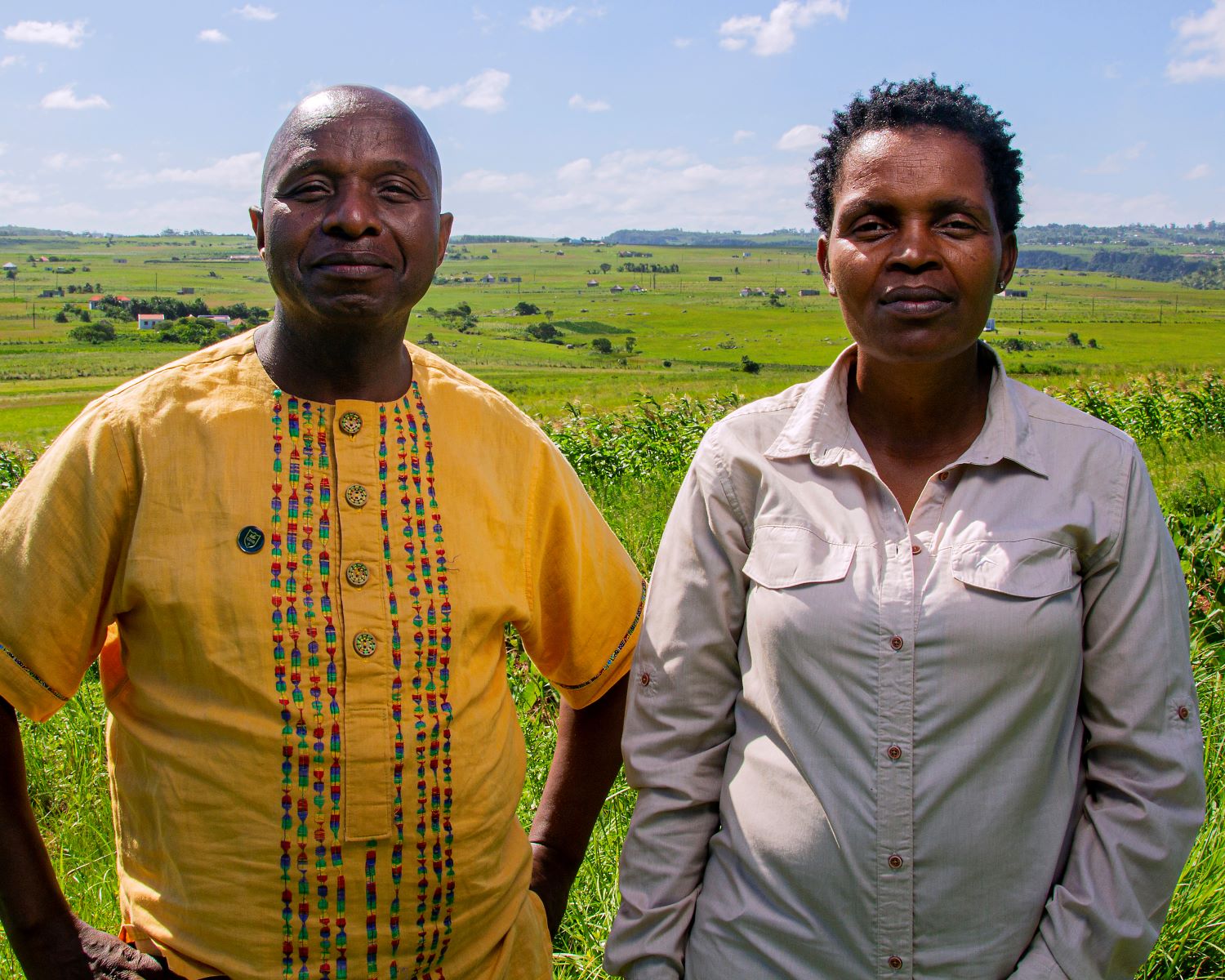Global Greengrants Fund congratulates the amazing activists from around the world who have received the 2024 Goldman Environmental Prize.
For 35 years, the Goldman Environmental Prize has recognized the achievements and leadership of activists who are on the frontlines of some of the most pressing environmental issues of our time.
We are honored each year to find Global Greengrants grantee partners, advisors, and allies among the Goldman Prize winners. This highlights the breadth and extensive reach of our network of 30 advisory boards made up of more than 220 activists, who give out more than 1,000 grants globally every year.
This year’s prize winners include Global Greengrants grantee partners Nonhle Mbuthuma and Sinegugu Zukulu from South Africa. Through their work with local communities in South Africa’s Wild Coast, these two incredible activists have not only safeguarded the region’s ecosystem, but have set a global precedent for protecting Indigenous cultures threatened by development.
Nonhle Mbuthuma and Sinegugu Zukulu

Nonhle Mbuthuma and Sinegugu Zukulu won the Goldman Environmental Prize for their efforts to stop seismic testing for oil and gas off the Wild Coast, an area in South Africa’s Eastern Cape.
Sinegugu Zukulu’s organization, Sustaining the Wild Coast, is a long-time Global Greengrants grantee partner, having received six grants from our advisory network since 2005. Their most recent grant in 2021 included support to their work training Amadiba communities in the Wild Coast about extractive industries, in addition to legal support for their work combatting Shell’s activities in the region. Global Greengrants also previously supported Sustaining the Wild Coast to oppose titanium mining in the region. Read more about these efforts on our blog.
“Huge congratulations to Nonhle Mbuthuma and Sinegugu Zukulu,” said Global Greengrants Fund Southern Africa Advisory Board Coordinator Liziwe McDaid. “Both of them are very strong activists against offshore oil and gas and for maintaining the Wild Coast as a space where sustainable livelihoods can happen.”
The Wild Coast is important for its rich marine biodiversity. It is a hub for migratory whales and many fish species that have dwindling numbers elsewhere. Its diverse marine environment makes it a vital part of South Africa’s natural heritage. However, in 2021, Shell announced plans to conduct seismic surveys in the region, with approval from the South African government.
Nonhle Mbuthuma and Sinegugu Zukulu, through their work with Amadiba Crisis Committee (ACC) and Sustaining the Wild Coast, respectively, worked together to organize the coastal community of Amadiba against Shell’s planned seismic testing. Amadiba is a region in the Wild Coast that is home to about 3,000 families, including the Indigenous Mpondo people.
In consulting with Amadiba communities, Nonhle Mbuthuma and Sinegugu Zukulu found that Shell had not consulted with Mpondo peoples prior to planning its seismic testing in the Wild Coast. They recorded affidavits from community members who objected to the seismic testing. According to the Mpondo peoples, the waters of the Wild Coast contain important portals to communicate with their ancestors, and Shell’s seismic testing would disrupt that communication. It would also cause harm to and disrupt the migratory patterns of the region’s marine life.
Nonhle Mbuthuma and Sinegugu Zukulu and their organizations worked together on a campaign that advocated for the rights of Mpondo community members to these traditional beliefs. They organized Amadiba communities through social media statements, a “community walk,” and through submitting the affidavits they had collected to the government, which eventually led South Africa’s High Court to issue a cessation order stopping Shell’s seismic testing.
Riding on this momentum, Nonhle Mbuthuma and Sinegugu Zukulu worked with international organizations like Greenpeace and Amnesty International to launch a legal challenge to Shell’s activities in the Wild Coast. The High Court ruled in their favor, finding that Shell had failed to consider the potential cultural, economic and environmental impacts of their seismic testing in the Wild Coast. The legal win was an important moment not just for South Africa and the Wild Coast, but internationally, setting a precedent for the importance of considering the how the impacts of extractive activities on ecosystems can also have detrimental effects on the cultural and spiritual traditions of Indigenous people in those ecosystems.
***
Global Greengrants is proud to support organizations like Sustaining the Wild Coast, who seed collective community efforts to stop the expansion of extractive industries and protect not only their local environments, but the entire planet. Nonhle Mbuthuma and Sinegugu Zukulu join a list of more than 75 Global Greengrants grantee partners and advisors who have received a Goldman Environmental Prize.
Congratulations, Nonhle and Sinegugu!
